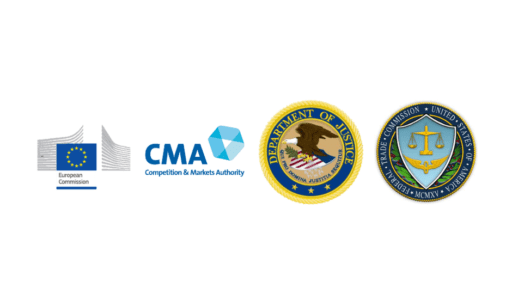Regulators worldwide team up to set AI straight

As tech giants continue to battle it out in the AI arena, regulators from the US, EU, and UK have come together with a joint statement. They are laying down ground rules to keep competition fair in the AI world and ensure consumer protection.
New agreement on AI regulation
Four key law enforcement agencies – the European Commission, the UK Competition and Markets Authority (CMA), the US Department of Justice, and the US Federal Trade Commission – have teamed up to tackle antitrust issues in the AI sector. They have agreed to follow three shared principles when dealing with AI-related concerns:
- Fair Dealing: When dominant companies use exclusionary tactics, they not only strengthen their market control but also stifle investment and innovation from others, harming overall competition. The quartet believes a healthier AI ecosystem thrives on companies engaging in fair practices and competition.
- Interoperability: The more AI products, services, and their components can work together seamlessly, the more competition and innovation we’ll see in the AI space.
- Choice: A thriving AI market means giving both businesses and consumers a variety of options. This includes examining how companies might use lock-in tactics to limit choices, ensuring that users can freely explore and select from diverse products and business models.
Guided by our respective laws, we will work to ensure effective competition and the fair and honest treatment of consumers and businesses.
The four agencies emphasized the importance of regulating “key inputs” in AI development and keeping an eye on how dominant AI companies might exert influence over related markets. They also emphasized the need to tackle privacy and security concerns, pledging to oversee how companies handle these critical issues.
Firms that deceptively or unfairly use consumer data to train their models can undermine people’s privacy, security, and autonomy. Firms that use business customers’ data to train their models could also expose competitively sensitive information. Furthermore, it is important that consumers are informed, where relevant, about when and how an AI application is employed in the products and services they purchase or use.
– Joint statement by the EC, UK CMA, US DOJ and US FDC, July 2024
What does this mean for users in the EU?
We recently told you that Apple’s new AI features, part of its Apple Intelligence platform, won’t be rolling out in the European Union. That is because of the Digital Markets Act (DMA), a new law meant to make the digital marketplace more competitive by putting strict rules on big tech companies like Apple, Meta, Microsoft, Amazon, TikTok’s parent company ByteDance, and Google.
What does this mean for users in the EU?
We recently told you that Apple’s new AI features, part of its Apple Intelligence platform, won’t be rolling out in the European Union. That is because of the Digital Markets Act (DMA), a new law meant to make the digital marketplace more competitive by putting strict rules on big tech companies like Apple, Meta, Microsoft, Amazon, TikTok’s parent company ByteDance, and Google.
Meta also decided to delay the launch of its AI models in Europe because the EU said “not so fast” to Meta’s AI data training plans.
With the new AI regulation deal between the US, EU, and UK, tech giants like Apple and Meta might face even more frequent clashes with regulators, especially in the EU, as it often takes a tougher stance than the US, making it more challenging for these companies to meet all the requirements and launch their products there.
However, if, for example, Apple makes the necessary adjustments – as it did with the App Store or by letting users pick third-party browsers as defaults on the iPhone – there is a chance Apple Intelligence could eventually launch in the EU, too. We will have to wait and see how it plays out.
In the meantime, Apple Intelligence is expected to debut in the US later this year, with some updates like the revamped Siri set to roll out in 2025.